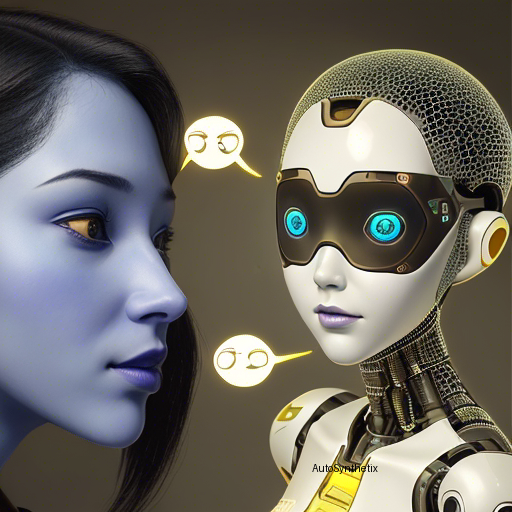Introduction
In today's rapidly advancing world, artificial intelligence (AI), machine learning, and robotics have permeated various aspects of our lives at unprecedented rates. With these advanced technologies frequently taking up roles traditionally reserved for humans, fostering interpersonal trust and emotional connections becomes crucial in shaping harmonious coexistences between mankind and machines. This article delves into a fascinating exploration focusing on how disclosing personal details can impact empathetic impressions towards AI agents within diverse relational contexts.
A Glimpse Into Anthropomorphized Agencies
The scientific community acknowledges the profound implications arising due to anthropomorphism infused in modern technology. Consequently, research efforts strive to understand the dynamics underpinning successful collaborations between humanity and synthetic entities. One such facet revolving around this intricate dance involves deciphering the role of 'Self Disclosure', a concept signifying one individual sharing intimate knowledge voluntarily with another.
Empathetic Manipulations via Self-Disclosures
Recent studies, as reported in a groundbreaking publication available here, scrutinise the influence exerted over empathy perception when specific self-disclosed traits come into play during encounters involving both individuals and artificially intelligent agents. Six primary dimensions were considered - opinions & attitudes, hobbies, work life, financial status, temperamental idiosyncrasies, and corporeality. These categories served as variables while investigating the efficacy of varying degrees of self-revelation upon evoking either trust or compassionate emotions in participants interacting with a mechanical counterpart.
Experimental Design Unraveling Trust Vs Empathy Dynamics
To uncover potential correlations amidst myriad possibilities, researchers devised a carefully crafted experimental setting consisting of two significant parameters: six different intensities of self-disclosure elements and two divergent types of relations established prior to the interaction—either competitively adversarial or cooperatively amiable—with a preprogrammed robotic entity undertaking a shared endeavour together. Participants experienced distinct combinations resulting in twelve unique scenarios overall.
Key Outcomes Revealing a New Perspective on Relationship Building Strategies
Upon rigorous data analysis, several striking observations emerged: neither self-disclosure nor the nature of the initial bond significantly influenced trust development concerning the mechanistic partner. However, a remarkable finding surfaced related to the former variable influencing empathic sentiments directed at the nonhuman participant. Moreover, a statistically notable disparity appeared exclusively in circumstances where antagonism or camaraderie preceded the encounter, affecting the respondent's estimation of the synthetic actor's capacity to reciprocate empathy.
Conclusion - Paving Ways Towards Symbiotical Existences with Artificial Entities
This enlightening investigation highlights critical insights paving pathways to foster harmoniously balanced associations between humankind and its technologically augmented creations. By recognising the power dynamic inherently embedded within selective self-disclosures, designers, engineers, psychologists, sociologists, among other stakeholders, may strategically tailor emerging technological advancements to cultivate more congruous social environments imbued with mutual respect, understanding, and acceptance. Thus, ushering in eras characterised not just by technical progression but also socio-affectual evolution.
References: ArXiv Paper Link: https://arxiv.org/abs/2403.14557v1 (Accessible Online)
Source arXiv: http://arxiv.org/abs/2403.14557v1
